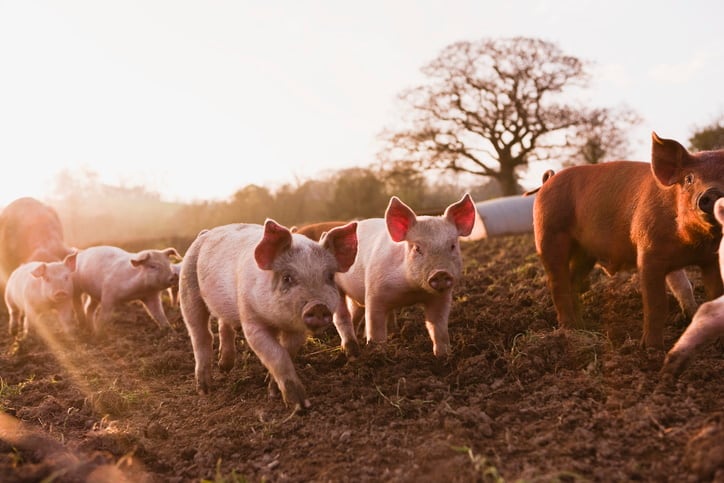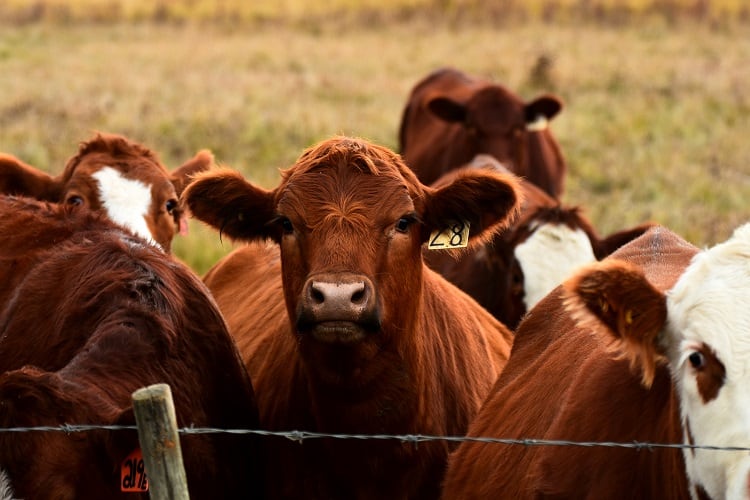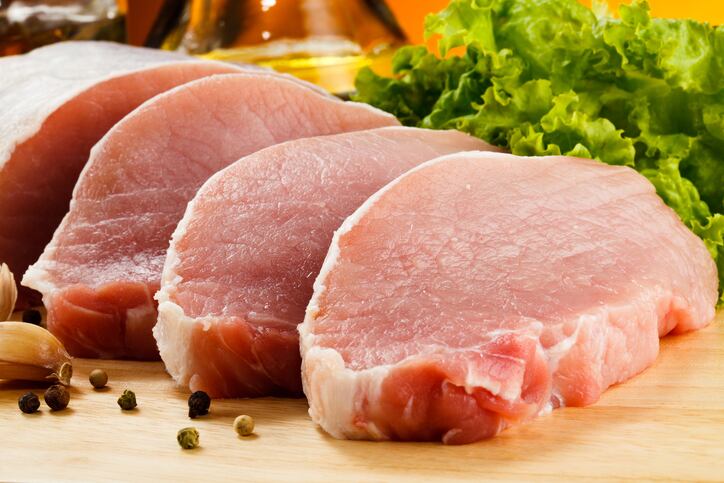Pilgrim’s Pride Ltd – the UK business acquired last year by US meat company Pilgrim’s Pride Corp, which is itself owned by Brazilian giant JBS – has developed a new sustainability strategy that aims to help deliver United Nations’ 2030 SDGs.
Five sustainability pillars have been identified: sustainable farming; sustainable food production; sustainable products; sustainable packaging and sustainable business & community.
These pillars ‘set out a framework’ that will enable Pilgrim’s Pride to establish more specific goals in line with the UN’s SDGs, sustainability chief Matt Dight told FoodNavigator. The company will be working to develop its roadmap towards attaining the SGDs this year and communicating specific, measurable and time-bound targets to stakeholders in next year.
“Of the 17 sustainable development goals, we are currently going through a process of making our targets fit for purpose to achieve those goals for our company by 2030,” Dight explained.
“As an example within that, on climate action, we're committed to net zero in our supply chain. We're looking at setting our pathway for that, we're going through the process now of setting science-based target for 2030.”
Carbon, soil, water and welfare
Globally, livestock production accounts for around 14.5% of global greenhouse gas emissions, according to the UN's Food and Agricultural Organization (FAO). As a result, the sector has come under fire from various quarters for its contribution to global warming.
When it produced its high-profile report into sustainable diets, for instance, the EAT-Lancet Commission called for reduced reliance of animal protein. The researchers argued that red meat consumption will need to decrease by more than 50% by 2050 in order to feed the world within planetary boundaries.
Representing the UK’s largest pork processor, Dight suggested that the current debate around the environmental impact of meat production is lacking in nuance. “It's very black and white at the moment,” he observed. “Meat isn't evil. It's how you raise it. It's how you prepare it.”
The complexity of different production systems is something of a barrier to a more balanced discussion. “It's difficult to explain, or for consumers understand the different systems in the UK, let alone considering global systems. There's a lot of information out there and disseminating it in the correct ways is challenging.”
The high carbon footprint of intensive feedlots is a world away from that of regenerative agriculture, which describes farming and grazing practices that, proponents believe, can help reverse climate change by rebuilding soil organic matter and sequestering carbon.
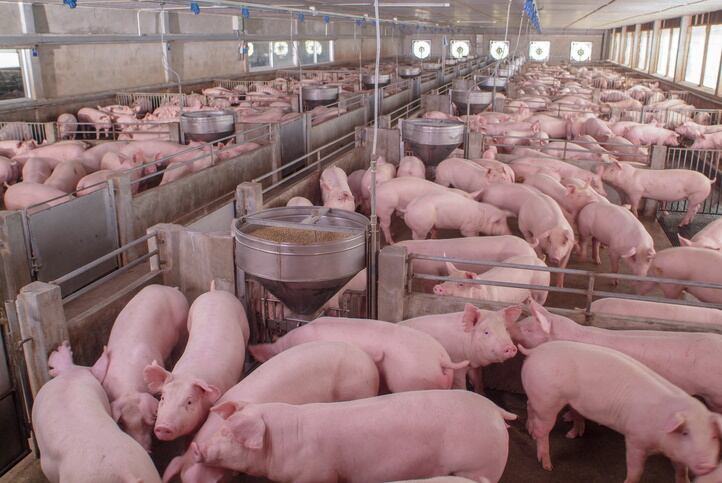
In the UK, Pilgrim’s production model incorporated many aspects of regenerative agriculture before the concept started to gain traction in popular discourse.
“A hundred percent of our operation forms part of an arable rotation. We’re using pigs to fertilise arable areas that are then sequestering carbon,” Dight explained. “A big part of what we've been doing for years is around soil, which is becoming increasingly more talked about.
"It's all very well thinking that you could just continue producing crops and that animal livestock is a thing of the past. But try to maintain those soils for use for cropping [without animal inputs]. You've then got a big problem with fertilizer use, pesticide use, destroying soils, et cetera.
“Animal welfare is important, managing carbon, water and biodiversity is critical. There is also a discussion about marginal land and whether actually most of that land is fit to grow crops.”
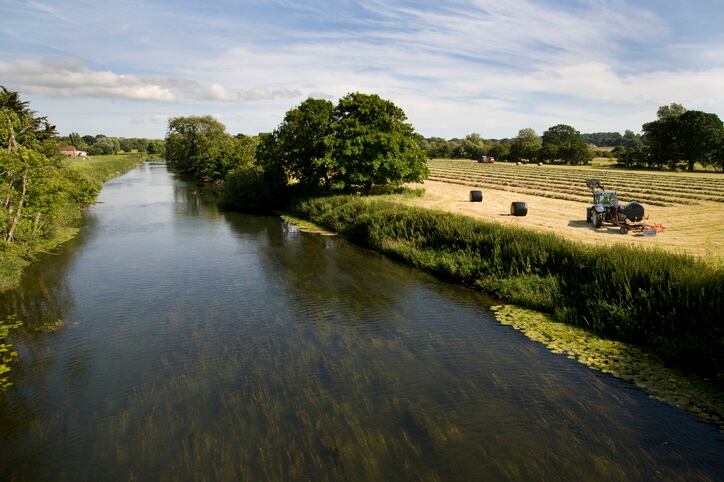
On water stewardship, the company works with Rivers Trust to ensure zero pollution makes its way into waterways. And on animal welfare, the meat processor has developed what Dight described as a ‘plus-plus’ model, building on RSPA assured as a minimum standard for 70% of the pork it processes, with the remaining 30% adhering to UK Red Tractor requirements.
“We are the largest higher welfare producer in the UK if not globally,” Dight said. “Our pork is RSPCA assured as a minimum, which we take as the starting point on the animal welfare front. Everything else gets built onto that, kind of plus-plus.
“There are lots of bits that actually, we don't really talk about that we probably should. It’s not like the environment is a second thought.”
R&D supporting net zero ambition
Regenerative practices are nothing new for Pilgrim’s Pride Ltd and its suppliers. Indeed, Dight continued: “That's basically been the that’s been our agricultural operation for about 40 years.”
Before the world was galvanised to action by the SGDs, Pilgrim’s Pride – formerly Tulip UK – had adopted these agricultural practices because they were economically efficient, the sustainability expert continued.
“We've been using regenerative practices because they make economic sense. We've been doing this efficiently for decades.”
Nevertheless, he continued, business-as-usual is not an option.
“If we don't continue down that pathway, there won't be businesses. There won't be an economy to contribute towards. You can't spend the next 20 years degrading soils completely because we won't be able to supply food. You can't spend the next 10 years degrading labour in the UK and not treating people fairly and not considering safety to be a condition because you won't have people to work for you. It's not nice to have sustainability. It's a requirement of doing business.”
Pilgrim’s Pride has therefore adjusted its approach to counting the carbon impact of its business. “Previous strategies for businesses such as Pilgrim's Pride will have always been focused on the operations, not necessarily the supply chain. This strategy is focused on the supply chain, we are looking at scope one, two and three emissions,” Dight revealed.
“Our scope three emissions are 97% of our carbon footprint. In pigs specifically it is monogastrics, that’s the feed and looking at the way we raise animals.”
Research into sustainable animal feed is therefore central to Pilgrim’s Pride’s efforts to reduce on-farm emissions. “We've got a very good R&D team. We've been one of the only processors with R&D in this area for a number of years now. We’ve already got the lowest usage of soy in pork in the world, at about 6-8% at the moment. The industry average can be 10, 15% within the UK. It's a lot higher globally.”
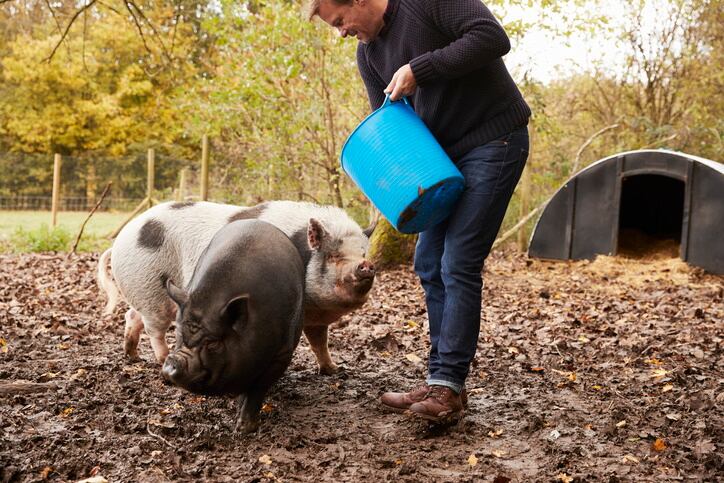
Elsewhere, Pilgrim’s has placed considerations like food waste and plastic use high up the agenda.
On food waste, Dight said the group is already the ‘best performer’ in the sector – but again, more progress can be made. “Our food waste score is 0.1% of our production, which we've set as a target to halve by 2030. But we are already the lowest there so it's difficult to tackle. As part of that commitment, we're focusing on packaging solutions for consumers, delivering on food waste within our own supply chain and make sure that we're avoiding it where we can.”
As the backlash against single-use plastics continues, Pilgrim’s is working find balance between the food preservation and safety benefits of packaging and plastic reduction.
“We're reducing the total volume of packaging used per kilo of production. We saw a reduction of about 3000 tons over the last year, which is roughly about 20% of our total. We're looking at opportunities to develop reusable packaging solutions, which is challenging in this field at the moment, but it's an area that we've got in there to focus on over the next decade. Recycling is still a big thing with this. It's ensuring the packaging that we use is widely recyclable and making sure the packaging we use has a percentage of recycled content within it.”
Pilgrim’s Pride Ltd has made clear headway on its path towards a more sustainable production system. And, following the 2019 acquisition of the company, the UK business unit believes it can leverage this relationship as a global platform to support best practice in pork production at an international level.
So, what’s next for the UK’s largest high welfare pork producer?
“Good question,” Dight responded. “It's about continuing our efforts to use pigs as part of a mix rotation in the UK. We’ve done a lot of R&D on sustainable diets for those pigs. We've done a lot of work with Rivers Trust around the UK on ensuring that there's no pollution from pigs. But there's further work to do. As you build those things, more things develop and you can make further progress. It's about getting to that net zero point as quickly as possible. It's about ensuring that we do it in the right way.”

